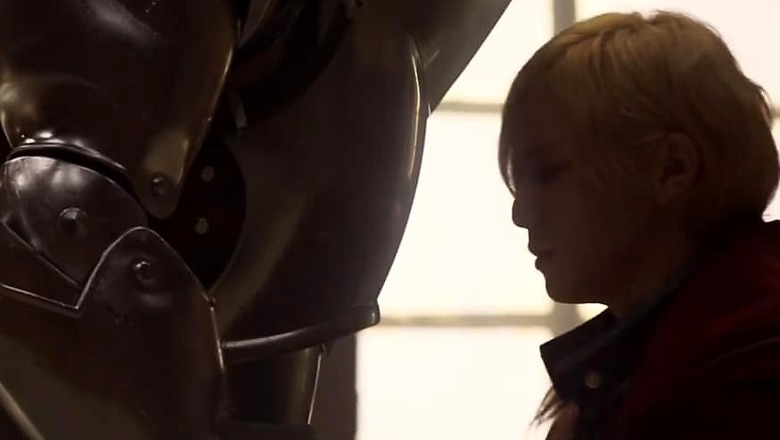
views
The comic culture is Japan is unimaginably deep rooted. Animated figures adorn just about everywhere in the country. Whether it be an advertisement for a telephone company or a sign in a railway station, funny characters conveying just about anything are to be found aplenty. So, it would seem only apt that the 30th edition of the Tokyo International Film Festival opens this evening with a movie, Fumihiko Sori's Fullmetal Alchemist, which is based on a very popular Japanese comic series.
“I thought it is appropriate to present to the world a comic book and VFX-based work that represents the current trend in Japanese cinema," Festival Director Takeo Hisamatsu said some days ago. “Even if the budget is not comparable to a Hollywood production, you will be surprised at its quality."
What is more, the Festival will kick off with a Japanese work after a decade. The last time it did so was in 2007, when Midnight Eagle set the 20th edition rolling.
Fullmetal Alchemist traces the journey of two brothers, who after losing their mother, run into a series of unfortunate incidents before they decide to fight and regain all that they have lost. The mother included.
Fullmetal Alchemist owes its origins to a Manga comic (also known for its bloody violent content that has often proved to be a hit with children) First visualised in 2001 by Hiromu Arakawa, it soon became a runaway franchise. It sold 70 million copies worldwide, and was adapted in several anime series and films. The Tokyo opener is the latest.
Sori agreed during a recent media interview that though Fullmetal Alchemist was part of the Shone Manga – aimed at boys – it did contain some “dark elements".
Sori, who worked with James Cameron to create the 1997 immensely popular Titanic – which was the inaugural movie at the Festival that year – is no stranger to Manga. He debuted in 2002 with Ping Pong, a live action version of the comic series by Taiyo Matsumoto. In 2011, he adapted Tomorrow's Joe, another comic work on boxing.
Fullmetal Alchemist is on a far grander scale than his earlier works, and Sori had to wait to make this, because the technology was not available in Japan till now.
The Festival will close on November 3 with the Al Gore-starer, An Inconvenient Sequel: Truth to Power, a documentary on how close we are to a real energy revolution. Al Gore, the American politician and environmentalist who served as the US Vice-President from 1993 to 2001, will attend the screening.
Between the opening and closing nights, Tokyo will showcase films, which will be -- in the words of Hisamatsu – “expansive, empowering and enlightening". The programme will offer a wide mix of genres, which will include dramas, thrillers and romantic comedies with a riveting international competition that will be judged by a panel, headed by the popular American actor-director Tommy Lee Jones.
The competition will have eight world premieres. Here are some titles: Zhanna Issabayeva’s Sveta, about a woman with a hearing disability fighting to survive; Takahisa Zeze’s The Lowlife, focusing on the personal struggles of female adult-video performers; Margarethe von Trotta's Forget About Nick, which talks about a model turning into a designer and being forced to live with her husband's ex-wife when he disappears; Asghar Yousefinejad's The Home, tracing the travails of a woman who returns to her family home after a long absence when her father dies; Govinda Van Maele's Gutland, an erotic thriller about a village drifter and; Dong Yue's The Looming Storm, which follows a factory guard as he begins to fancy himself as a detective trying to probe a murder.
















Comments
0 comment